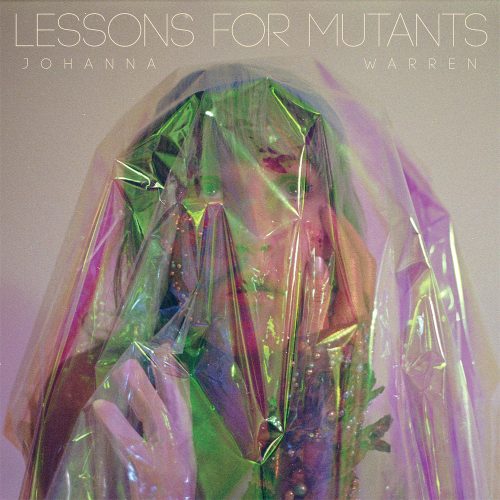In the music video for “I’d Be Orange,” Johanna Warren only gets through the first line of her song before she’s interrupted by her boss at the diner where she works as a waitress. “I’m not paying you to serenade the rats!” he snarls. “Get back to work!” It’s easy to see why she might want to hide in the storage room: on the job, she has to deal with sneering coworkers, couples screaming at each other, and an annoying little girl who throws confetti at her. On top of that, everything’s lit in lurid neon reds and purples, which is terrible for a diner but great for a rock show – which Warren starts when she grabs a guitar and jumps onto a table. The audience cheers for a moment, until, having grown sick of her, they start pelting Warren with food. One can assume they were lousy tippers, too.
The video reflects the song’s stated theme. Warren has said that “I’d Be Orange” is “about martyrdom and masochism in pop culture and the quest for stardom.” Whether out of sadism or just sheer boredom, the pop culture landscape loves to tear down the people it built up – whether an artist makes a mistake or simply enters their “flop era,” audiences revel in humiliation and failure. And yet, knowing that success is not guaranteed and that failure may be unavoidable, thousands of young artists dive headlong into a quest for stardom, consequences be damned. If it’s better to have loved and lost than never love at all, maybe the same is true for fame: better to be loved and then hated rather than ignored.
The song’s title comes from a brief, brightly melodic verse towards the end of the song, which probably would have been the chorus if it happened more than once: “If everyone was a color/you’d be red and I’d be orange/even though I don’t like orange/just so I could sit next to you in the rainbow.” It’s a sweet, almost cutesy sentiment, but it shows the narrator’s sheer desire to be liked, or even just to be perceived – she’s willing to be something she doesn’t like if it means she’s not alone. “Time forgot me here,” she sings at the start of the song, and she’s not happy about it.
Still, it’s clear that the narrator of “I’d Be Orange” isn’t Warren herself. Her voice is relaxed, deadpan, and supremely chill, and surrounded by the kind of sun-baked indie rock you might hear in some slacker movie in the 90s, she sounds perfectly at ease with herself. “Set me on fire so you can see my guiding light,” she sings, but Johanna Warren is no martyr – she’s doing just fine being herself.







